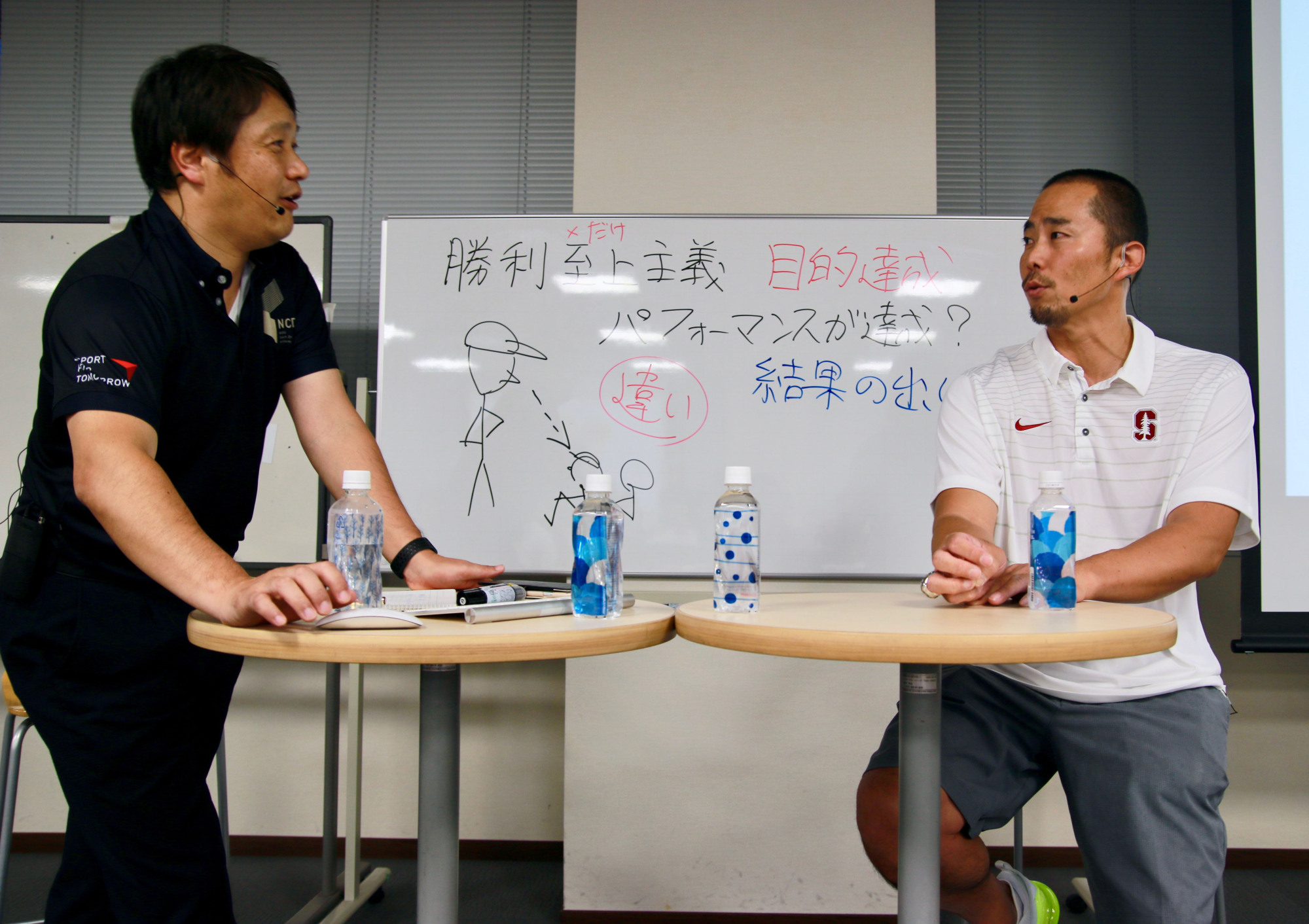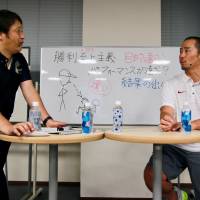We have seen various types of unreasonable harassment problems surrounding Japanese sports, especially in school athletics, over the last several years.
One of the most notable and recent cases involved the Nihon University football team, where a player was allegedly ordered by his coaches to make illegal tackles on the opposing quarterback during a game in May. The incident drew massive national coverage in the media.
So why do these issues keep happening?
It is often said governance is not properly functioning, with school sports in particular, in Japan.
But a pair of intellectuals insisted it would be vital to give coaches the opportunity to keep learning how to be better coaches. Doing that, they said, could change the country's sporting culture.
On Friday, Nippon Sport Science University coaching studies professor Masamitsu Ito and Stanford university football coach Tsuyoshi Kawata exchanged opinions about what would help improve coaching in Japan during a workshop at the Tokyo university.
Kawata, who has been with the Cardinal since 2007, introduced different customs and ideas based on his experience as a football coach in the United States during the workshop.
One of the things he cited was the American Football Coaches Association, which holds a convention every January that brings together coaches of all levels from across the nation. He said the coaches discuss many different topics, even strategical concepts, in order to study every facet of the game.
The 46-year-old, who added there are similar conferences for other sports in the U.S. as well, said it is essential for coaches to "keep learning new things."
"Compared to America, where I am basically living, I think there are fewer occasions for coaches (in Japan) to feel they have to develop."
Ito, a top coaching studies scholar who serves in numerous roles, including as a committee member of the International Council for Coaching Excellence, has stressed the importance of developing coaches.
Ito said there are no absolute answers in coaching, yet it is important to establish a culture to keep improving as coaches in Japan.
Ito said the programs would need to be innovative, as opposed to having participants sitting at desks studying theories, to entice coaches to participate.
"I think we are going to have to come up with programs to make the coaches think they want to actively learn," Ito said. "I think it is a reality that there are few opportunities for the coaches to learn even if they want to learn."
The winning-is-everything culture has often been said to lead to impractical and unreasonable methods of coaching, such as corporal punishment, in Japan.
But Kawata stressed that wanting to win isn't wrong and is something that's pushed in the United States as well.
The offensive assistant for Stanford pointed out one of the differences between Japan and America is that the ideas of coaching to win and coaching to develop athletes don't coexist in Japan.
With that being said, Ito and Kawata agreed on the necessity of hiring professional coaches, even in scholastic athetics. In Japan, teachers usually serve as coaches for athletic teams. This is true even at the university level, since athletic clubs are not official school activities, where many of the coaches are volunteers.
Kawata said that if coaches are professionals who get paid for coaching, they then have clear responsibility. Not just responsibility to win, but responsibility to be educators and to help the development of their athletes.




